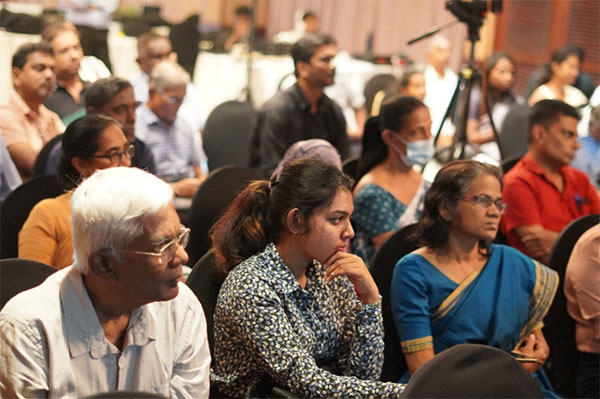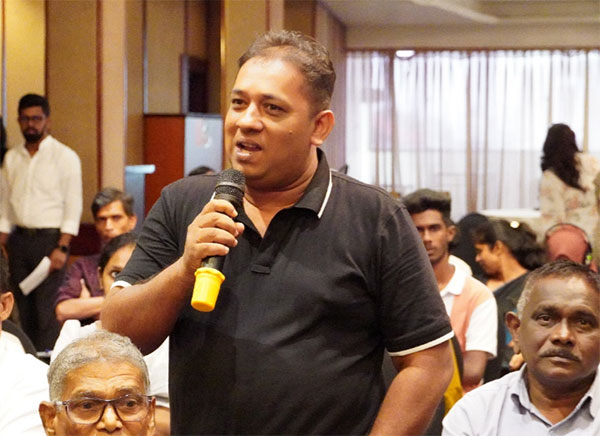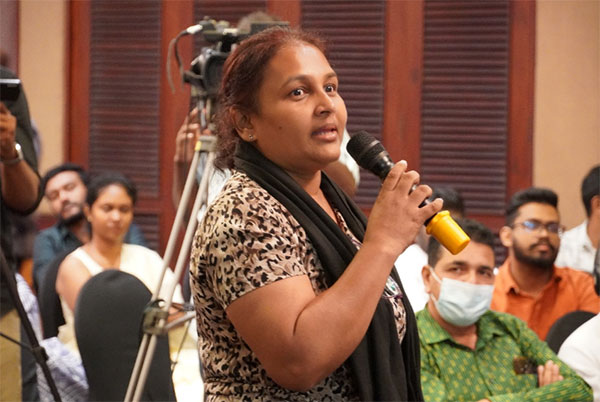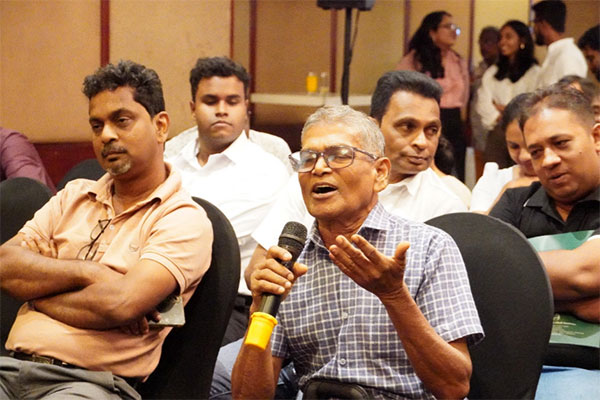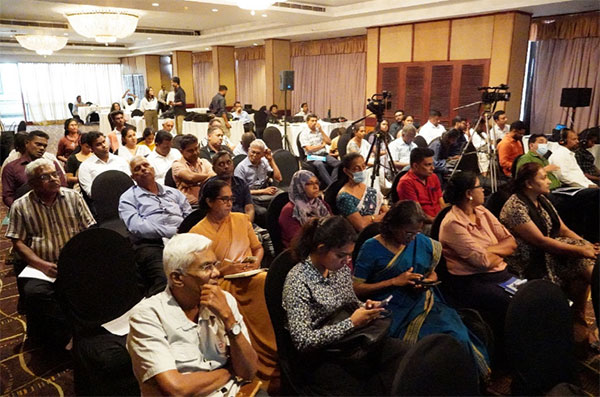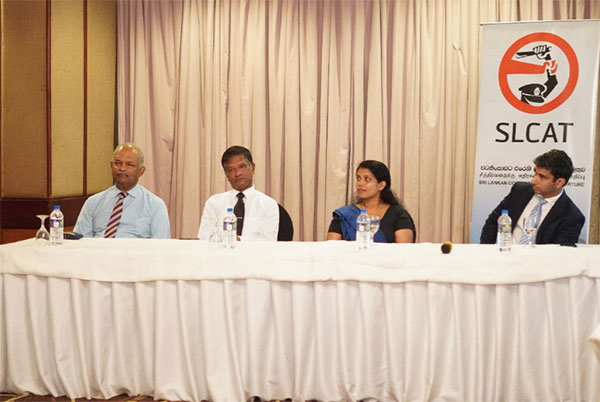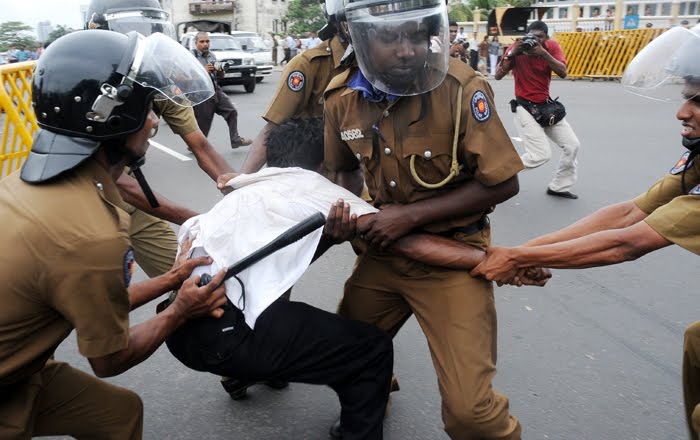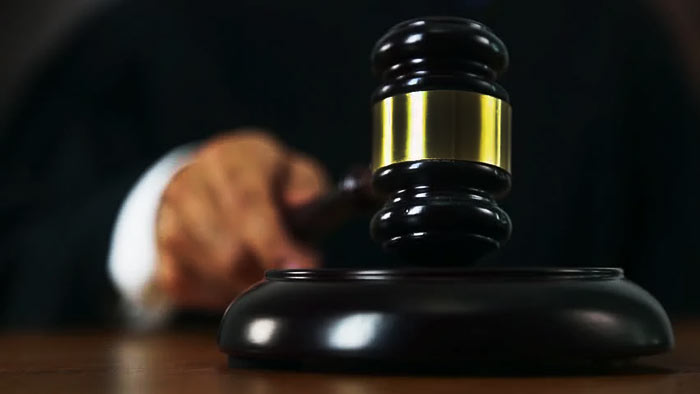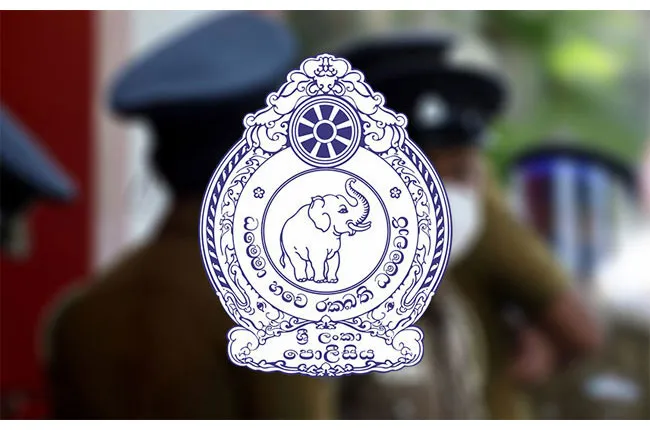On June 26, 2024, the Right to Life Human Rights Centre, in collaboration with the Sri Lanka Collective Against Torture (SLCAT), hosted an Expert Forum at Hotel Janaki to mark the International Day in Support of Victims of Torture. The forum, titled “Ongoing Torture Despite Extensive Anti-Torture Legislation,” brought together prominent figures such as Shani Abeysekera, former Director of the Criminal Investigation Department, Dr. Chulani Herath, a senior lecturer, and attorney Lakshan Dias, along with representatives from the Human Rights Commission of Sri Lanka. The event aimed to highlight the persistent issue of torture in Sri Lanka despite the country’s robust legal framework designed to combat it. It served as a critical platform for discussing the gaps in enforcement, sharing real-life experiences, and exploring strategies to strengthen the implementation of anti-torture laws.
Crime Investigations Without Torture: A Reality?
Shani Abeysekera, Former Director of the Criminal Investigation Department
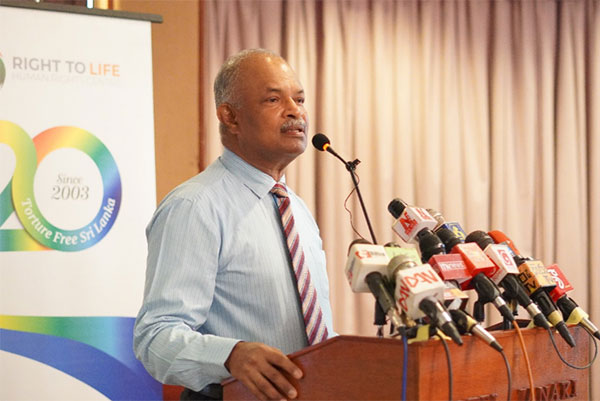
“Can we conduct crime investigations without torture? What are the modern methods used globally?” Shani Abeysekera’s simple answer to this critical question was a resounding no. He emphasized that effective crime investigation relies heavily on a range of sophisticated techniques beyond physical coercion.
Abeysekera outlined that questioning remains a fundamental method for uncovering the truth, finding evidence, and cross-examining that evidence. Effective questioning requires considering various factors such as the suspect’s gender, age, health, and mental condition. He highlighted the importance of using audio-visual aids, distant monitoring, and re-studying interrogation videos. Creating a suitable environment and maintaining close attention to the suspect without expressing personal opinions or conclusions is crucial.
He stressed the necessity of thoroughly understanding the crime scene, potentially using maps, and allowing suspects to contribute to notes. The interrogator should be well-versed in the case details and ensure the suspect cannot build confidence. The questioning should be non-chronological to prevent the suspect from preparing answers. Abeysekera also noted the importance of understanding non-verbal cues, such as gestures, facial expressions, body language, and behavioural changes, which should be meticulously recorded.
Modern technology plays a vital role, including the use of fingerprints, DNA analysis, and mobile phone data. While lie detectors are not currently legal in Sri Lanka, Abeysekera suggested that such technologies could be legally introduced to enhance investigative methods. He concluded by advocating for the presence of two interrogators to ensure coherence and consistency, and to prevent the suspect from strategizing during breaks.
A Human Rights Lawyer’s Perspective on Investigations
Lakshan Dias, AAL, Chairman of Right to Life Human Rights Center
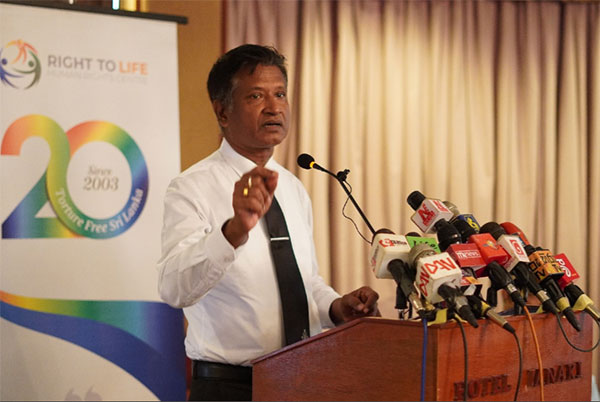
Lakshan Dias opened his presentation by asserting that torture is inherently political and that true democracy cannot be achieved without its eradication. He emphasized the underutilization of the Human Rights Commission of Sri Lanka (HRCSL) as the main tool to mitigate torture. Although HRCSL has a hotline and its interventions have occasionally helped reduce instances of torture, there is a need for more consistent and proactive engagement between HRCSL and investigative bodies. Dias urged for greater public pressure and scrutiny on HRCSL to enhance its effectiveness.
Dias highlighted the importance of advocacy in holding perpetrators accountable, particularly through interventions and Fundamental Rights petitions. These petitions are crucial as they can hinder the career advancement of officials involved in torture. He also mentioned a recent Act requiring magistrates to visit police stations regularly, though its implementation remains inadequate.
Judicial and legal activism, as well as advocacy for these efforts, are critical yet insufficiently developed in Sri Lanka. Dias pointed out problematic aspects of the legal framework, specifically the definition of torture in the Act and the narrow interpretations by institutions like the Attorney General’s Department, which often limit torture to harassment for information extraction.
He concluded by stressing the necessity of advocating for maximum compensation for torture victims, underscoring the importance of comprehensive legal and institutional reforms to combat torture effectively.
The Role and Limitations of the Human Rights Commission of Sri Lanka (HRCSL)
Dr. Gehan Gunatilake, Representative of HRCSL
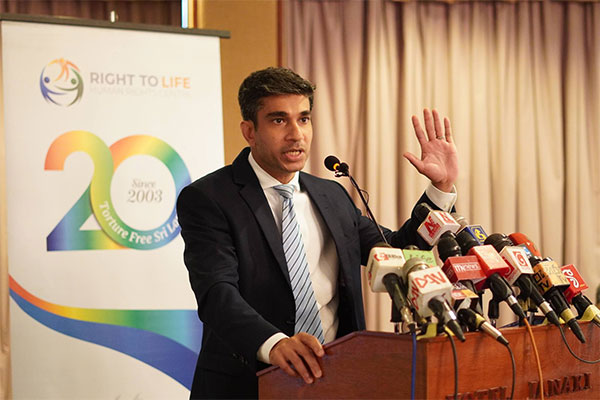
Dr. Gehan Gunatilake began his presentation by reflecting on the impact of the Convention Against Torture and Other Cruel, Inhuman or Degrading Treatment or Punishment Act No. 22 of 1994. Despite its introduction 30 years ago, only 115 cases have been filed under this Act, resulting in fewer than 10 convictions. He stressed the urgent need to further strengthen the HRCSL to make it more effective in its mandate.
Dr. Gunatilake called for a systemic change, emphasizing that torture is a severe crime that must be thoroughly investigated and appropriately punished. He highlighted the critical importance of witness protection in ensuring the integrity of investigations and advocated for bolstering the National Authority for the Protection of Victims of Crime and Witnesses.
To address the ongoing challenges in torture investigations, Dr. Gunatilake proposed the creation of a new mechanism specifically for this purpose. He suggested studying international experiences to guide these efforts and strongly advocated for the establishment of an independent authority dedicated to investigating torture cases, ensuring impartiality and effectiveness in tackling this grave issue.
Addressing the Psychological Impact of Torture
Dr. Chulani Herath, Senior Lecturer, Open University
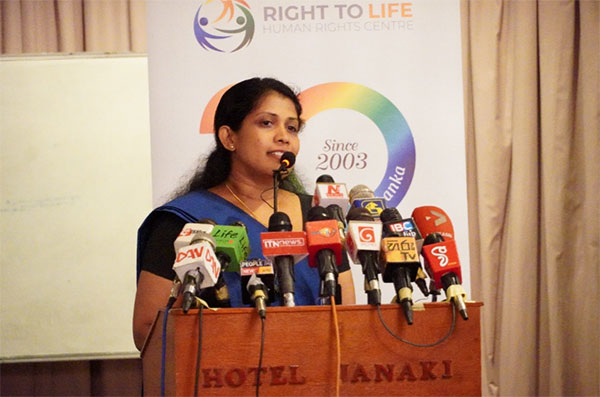
Dr. Chulani Herath addressed the profound psychological impact of torture, emphasizing that traumatic experiences are often repressed, leading to longstanding negative consequences for victims. She outlined the various emotional and psychosomatic damages, including the potential development of anti-social behaviours, depression, suicide, anxiety disorders, Post-Traumatic Stress Disorder (PTSD), cognitive impairments, and altered perceptions.
Dr. Herath stressed the importance of both legal and health interventions in addressing these issues. She advocated for a multi-disciplinary approach, highlighting the need for solidarity among various fields to effectively support and rehabilitate torture survivors. The mentality of the torturer must also be considered and addressed to fully understand and mitigate the cycle of torture.
The Expert Forum on “Ongoing Torture Despite Extensive Anti-Torture Legislation” illuminated the persistent challenges and gaps in eradicating torture in Sri Lanka, despite robust legal frameworks. The insights provided by experts such as Shani Abeysekera, Lakshan Dias, Dr. Gehan Gunatilake, and Dr. Chulani Herath underscored the multifaceted nature of the issue, highlighting the need for comprehensive legal, institutional, and psychological interventions. The forum emphasized the importance of strengthening the Human Rights Commission of Sri Lanka, adopting modern investigative techniques, enhancing judicial and legal activism, and addressing the psychological impacts on both victims and perpetrators. This collaborative effort marked a significant step towards fostering a culture of accountability, respect for human rights, and the eventual eradication of torture in Sri Lanka. The discussions and proposed strategies offer a roadmap for future actions, aiming to ensure justice and dignity for all citizens.
